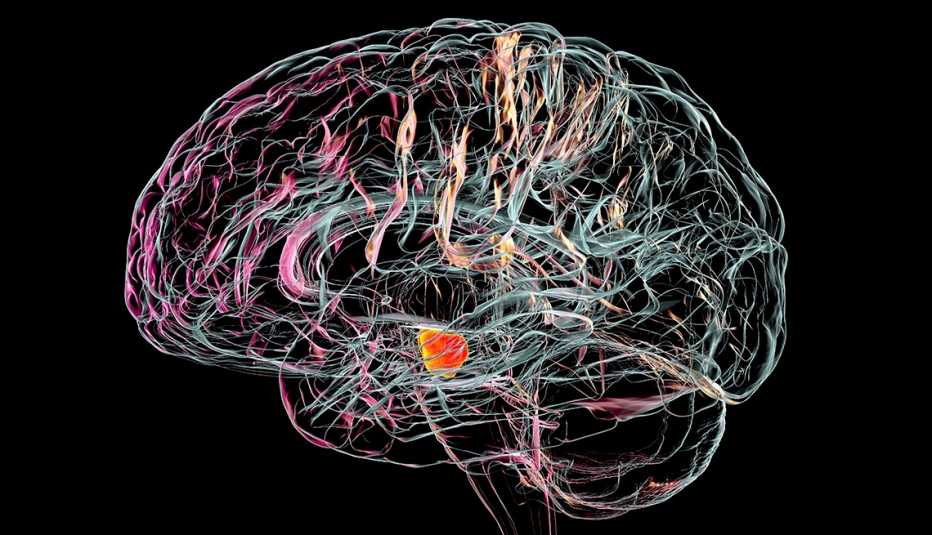Staying Fit


Scientists have shown they can identify Parkinson’s disease using a biological marker even before physical symptoms arise, such as tremors, balance issues or loss of smell.
The test, known by the acronym αSyn-SAA, was found to have robust sensitivity in detecting synuclein pathology — a buildup of abnormal proteins believed to happen in the early stages of Parkinson’s, according to a study reported in The Lancet Neurology.


AARP Membership— $12 for your first year when you sign up for Automatic Renewal
Get instant access to members-only products and hundreds of discounts, a free second membership, and a subscription to AARP the Magazine.
Finding a biological test for Parkinson’s is being hailed as a critical tool toward developing treatments and possible cures.
Kenneth Marek, M.D., a scientist at The Michael J. Fox Foundation’s Parkinson’s Progression Markers Initiative and principal investigator, president and senior scientist at the Institute for Neurodegenerative Disorders, co-led the research. Marek said the test’s validation of this biomarker “launches a new, biological era in Parkinson’s research” that will “transform” clinical care and the search for treatments, preventions and cures. A biomarker is something identifiable and measurable in the body that can predict or diagnose disease activity.
“We will rapidly be in a position to test new therapies in the right populations, target the right therapy to the right patient at the right time, and launch studies of agents with potential to prevent Parkinson’s disease altogether,” Marek said in a statement.
Actor Michael J. Fox, who was diagnosed with Parkinson’s in 1991, said in a news release that he is “deeply moved by this breakthrough” and grateful to the researchers, study participants and funders involved in finding biological markers of the disease. The study was funded by The Michael J. Fox Foundation for Parkinson’s Research and a consortium of more than 40 private and philanthropic partners.
“We weren't casting about for fish — we were going after a whale. Now, here we are. Together we are making a cure for Parkinson’s inevitable,” Fox said.



































































More From AARP
Waging War on Prostate Cancer
Philanthropist Michael Milken talks about the path to zero deaths by mid-century
Do Artificial Sweeteners Cause Cancer?
A WHO warning about aspartame has reignited the decades-long debateWhat are Dense Breasts?
Here’s what you need to know about a common issue among women